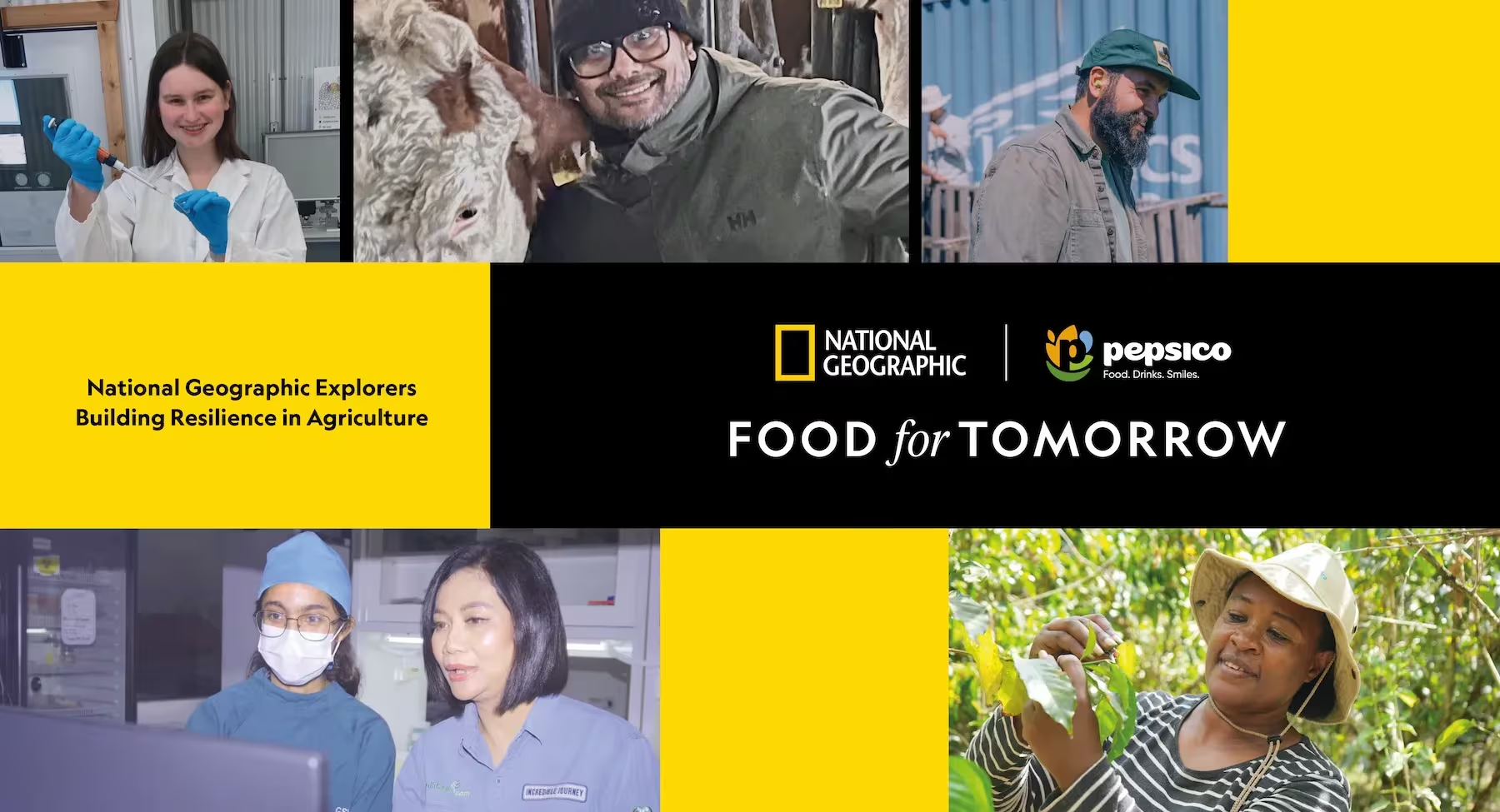Key Takeaways
- PepsiCo and the National Geographic Society awarded five new grants for on-farm regenerative agriculture research
- Research targets climate-stressed regions and key crops including wheat, maize, potato, soy, and coffee
- Initiative is part of the Food for Tomorrow collaboration launched in 2025
- Scientists were selected from proposals submitted across 140 countries
- PepsiCo has expanded its goal to support regenerative practices across 10 million acres by 2030
PepsiCo Expands Food for Tomorrow with New Research Grants
PepsiCo and the National Geographic Society have announced five new grants to fund on-farm research aimed at advancing regenerative agriculture. The selected scientists were chosen from a competitive pool of applicants across 140 countries and will join the Society’s global community of Explorers.
The funding is part of Food for Tomorrow, a collaboration launched in 2025 between PepsiCo and the National Geographic Society. The initiative combines scientific research, storytelling, and education to promote regenerative agriculture practices in climate-stressed production regions.
“For over a century, the Society has been funding innovative science to better understand our world. Regenerative agriculture is an exciting new area of focus for us,” said Ian Miller, Chief Science and Innovation Officer at the National Geographic Society. “This work is deeply interconnected with many longstanding issues that we tackle: safeguarding freshwater and coastal ecosystems; restoring landscapes to support biodiversity, reduce our carbon footprint, and secure irrecoverable carbon reserves, and more.”
PepsiCo Supports Climate-Focused Crop Research
Over the next two years, the funded Explorers will conduct research in wheat, maize/corn, potato, soy, and coffee systems across climate-impacted regions.
Projects include regenerative wheat and maize trials in Spain; microbial and intercropping systems for coffee and potato in Ethiopia; soil regeneration and AI-enabled farmer tools for maize in Indonesia; prairie restoration corridors in Wisconsin; and nitrogen-fixing rotations for U.S. potato production.
PepsiCo has been working to scale regenerative agriculture globally and recently expanded its goal to support the adoption of regenerative, restorative, or protective practices across 10 million acres by 2030.
“The global food system is under increasing pressure from climate change and extreme weather, and meeting this moment requires supporting the people at the heart of it – the farmers,” said Jim Andrew, Executive Vice President and Chief Sustainability Officer at PepsiCo. “Farmers get one chance each season to make a crop succeed. That’s why strong, science-backed practices matter. By continuing to demonstrate what works, we can give farmers the confidence that regenerative agriculture not only helps build a more resilient food system but also strengthen their livelihoods.”
Integrating Science, Storytelling, and Digital Tools
The Food for Tomorrow program includes both scientific and storytelling-focused Explorers. Since mid-2025, storytelling participants have documented regenerative farming efforts across 12 countries and 13 crop systems. Multimedia exhibitions, journalistic features, community forums, and digital campaigns are expected to launch beginning later in 2026.
According to PepsiCo and the National Geographic Society, the initiative aims to generate practical, field-tested solutions while amplifying farmer experiences and advancing the broader adoption of regenerative agriculture practices globally.


